Clacton
Text by Susie Parr, photographs by Martin Parr.
In contrast with Southend’s straight, endless miles of harsh, gravelly sand, Clacton’s seafront offers delights on a more human scale. The beaches are smaller, more curved, and the yellow sand is soft. Here, instead of collapsing, sandcastles stand firm when the bucket is removed. Even the fun fair on the pier seems gentler, and more geared to families with children. At the end of the pier, a sleepy cafe sees few customers apart from one or two performers from the Fantasia Circus coming in to re-fuel between sessions on the high wire.
On a sunny Saturday afternoon, fifty worshippers from St Francis’s Catholic Church in Stratford, East London, pile out of their coach and on to the sand by the pier. Deck chairs are arranged, tables set up, cool boxes unpacked, wind breaks hammered in and barbecues lit.
This seems to be the beach of choice for church day trippers; another group from Wembley sets up camp nearby. There is some paddling but not much swimming. Lana, who is wearing a Jesus Loves You tee shirt, says that these outings -carefully planned for months- are good for people who can’t go on holiday, and especially important for the children. Having lost her own mother last year, she now has no reason to travel to Jamaica, yet she needs a break from London. The day trip to Clacton presents the ideal opportunity to get a change of scene, a breath of sea air, and enjoy platefuls of chicken and rice in good company.
A couple of days later, on the same beach, a group of Hindus from Ilford are trying out Clacton as the venue for a ceremony to mark the end of Shravan Month. They have fasted intermittently through the month and have now come to the sea to pray, sing and make offerings to Lord Shiva.
Although there are some men in the group, it is predominantly older women who take part in the ceremony, wetting their feet in the sea, making a model of Lord Shiva from sand gathered at the water’s edge and laying out candles and offerings of food. They have to come to the seaside for this ceremony, and hitherto – for some reason – have chosen Bournemouth, a five hour journey from home. Clacton is much easier for them, being only 90 minutes away.
Further along the seafront, a large family gathering of Sikhs, hailing from many different parts of the UK, congregates on the sand. The women spread out sheets and blankets, sitting slightly apart from the men, who have wine and barbecue on the go. One man plays the tabla drum and sings softly. He is very nearly drowned out by the golden oldies that blast from the speakers stationed outside Bar 3. Here, lager in hand, weekend DJ Martin is half way through a 7 hour shift, picking out favourite tracks from his files of CDs. Unfazed by the lack of an audience, he is a real pro – introducing each number and smoothly shifting from up tempo disco to relaxed, mellow mood as the afternoon fades.
Along the coast, in Frinton and Walton on the Naze, there is little to disturb the peace as beach huts are unlocked and swept, kettles boiled and owners settled on sun loungers for a quiet chat or a go at the crossword. The sedate atmosphere and homogenous demographic makes nearby Clacton’s beaches, crowded and diverse, with palm trees planted in pots in the sand, seem a million miles away. Londoners bring the world to the seaside. For the Hindu worshippers from Ilford, Clacton is a revelation, and they plan to return.
Susie Parr, March 2018

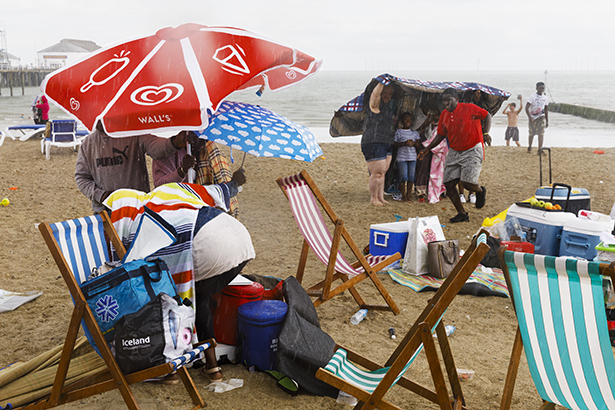
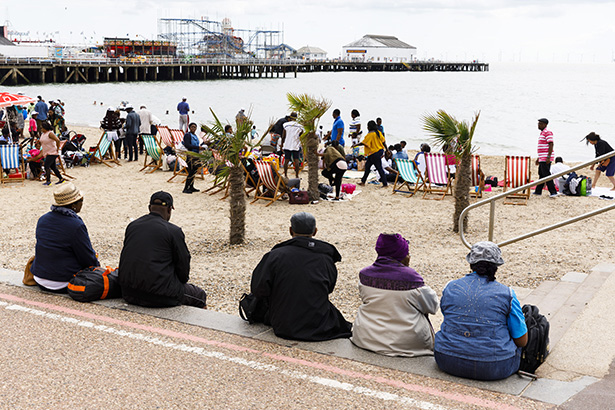
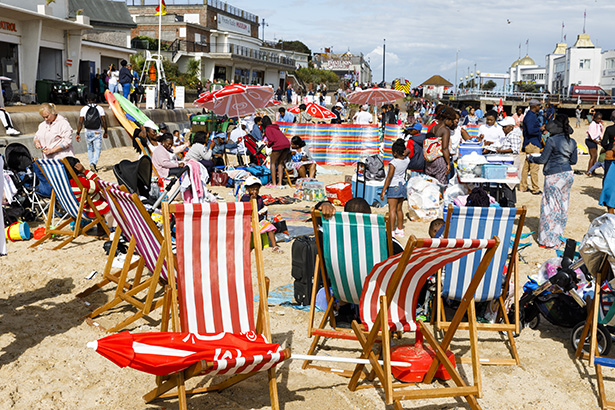
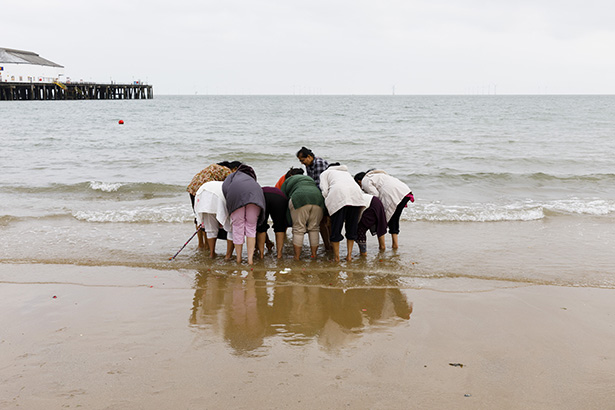
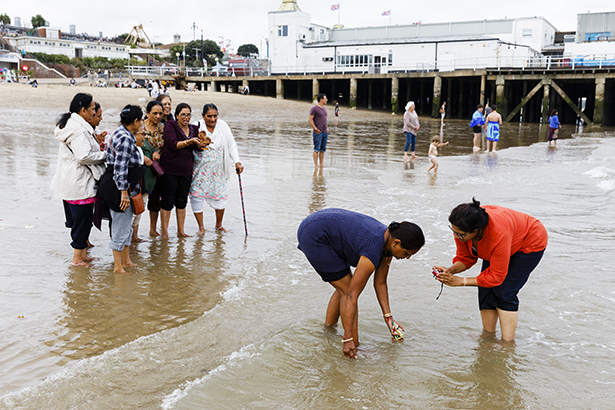
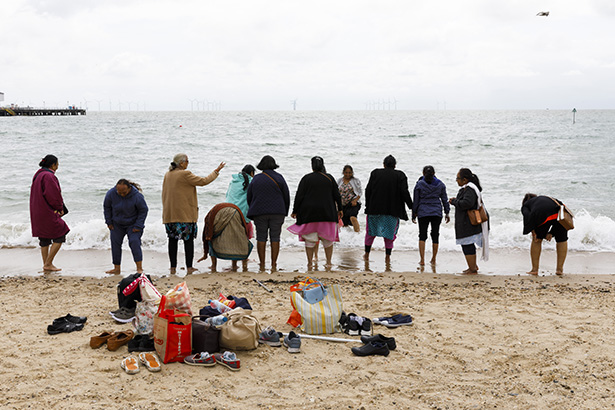
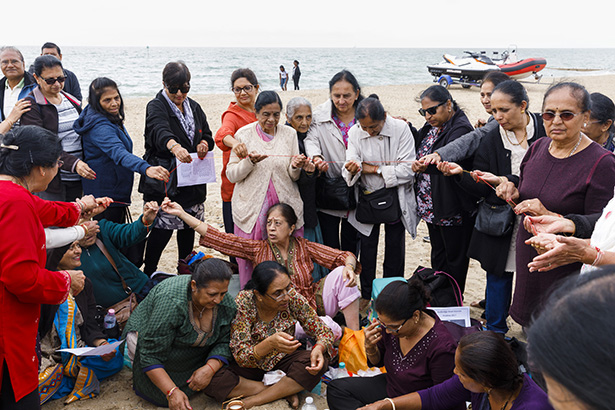
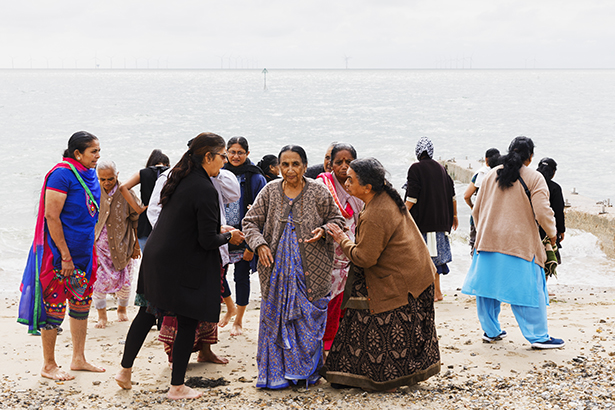
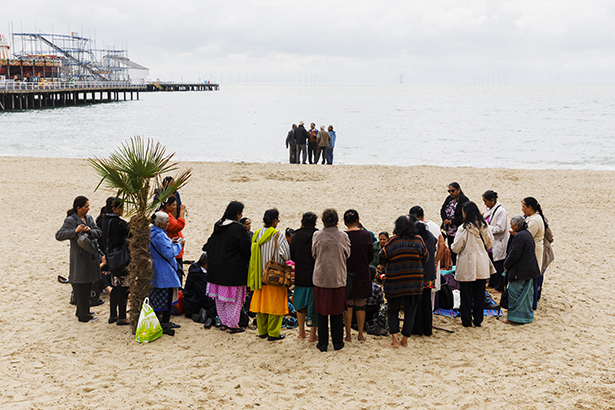
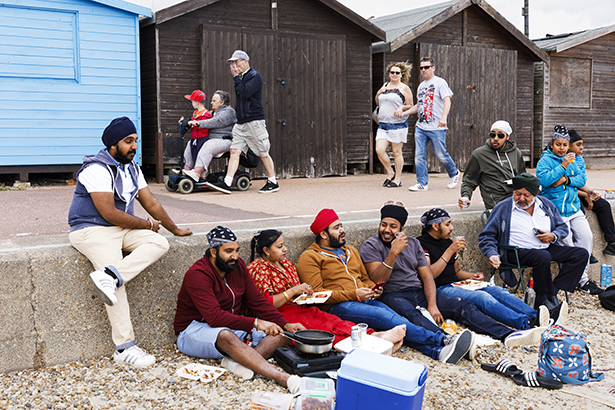
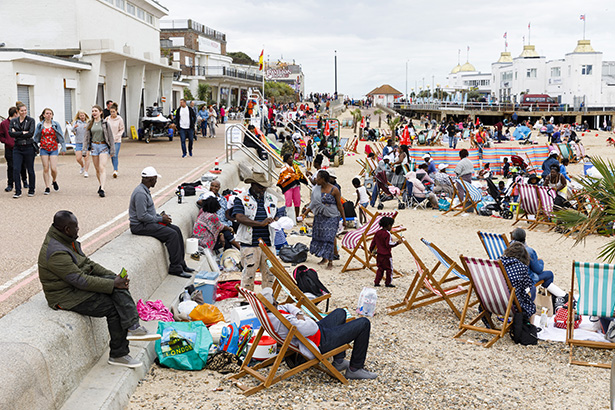
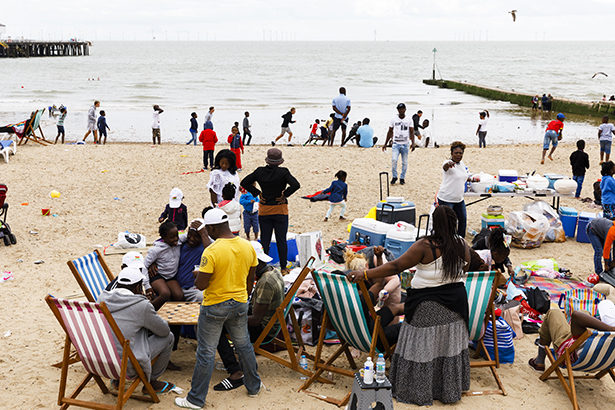

Comments are closed.